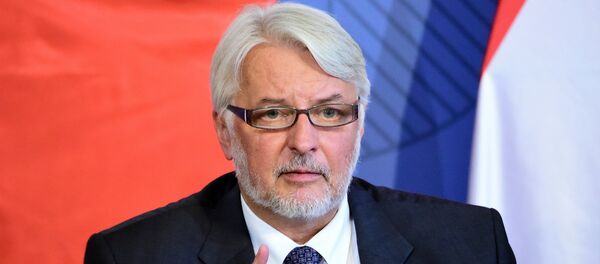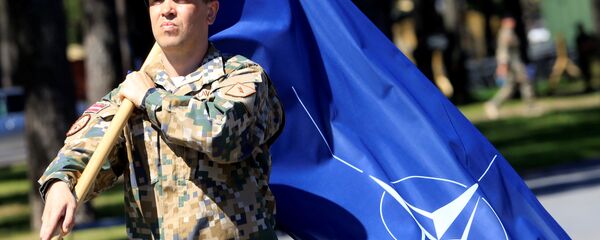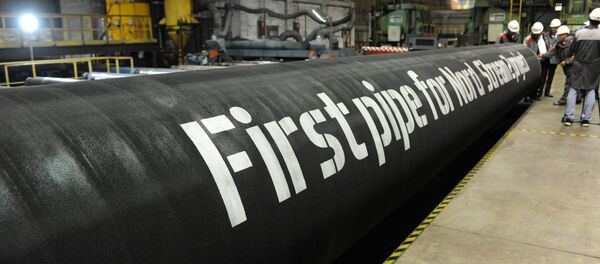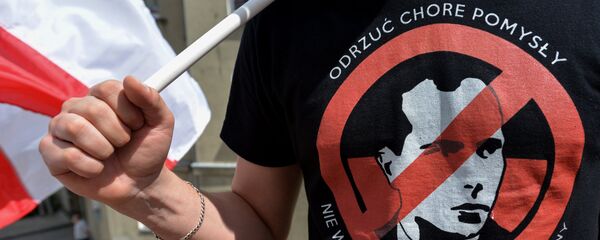In an interview for Austria's Der Standard last week, Waszczykowski said that Poland sees opportunities for improving relations with Russia.
"We are neighbors with a huge market and a major supplier of raw materials…We are hopeful that we can convince Russia of our good intentions. NATO and the European Union do not [want] to provoke Russia, but respond to Moscow's provocative behavior," the minister said.
After all, the observer noted, "if the traditionally Russophobic Poland has turned its back on Ukraine (a project that Poland created and fostered more persistently than all other European countries) and declaring its desire to patch things up with Russia, what more could [Moscow] wish for?"
In reality, things aren't so simple, Ishchenko wrote. "Politics is a not a zero-sum game, and Kiev's obvious loss is not an obvious victory for Russia. There is only one thing that's obvious: Poland aspires to win."
"Has Poland become Russia's ally? No. Perhaps it has rejected its alliance with our adversaries? Again, no. Has Poland changed its attitude toward our recent history? No – on the contrary, Warsaw is preparing the demolition of Soviet monuments."
"So what did the Polish foreign minister mean?" the observer asked. "Is he deliberately trying to mislead us? Very doubtful. Diplomats are not bloggers. They value their reputation and do not lie openly…But they can speak only part of the truth. If one does not want to be deceived in one's hopes, it's necessary to pay attention not to what diplomats are saying, but what they are silent about."
"The first part of this statement indicates that Poland would like to return its apples, and other goods which fell under Russian countersanctions, to the Russian market. Furthermore, Warsaw would be happy to take up the niches left by its EU counterparts." In this, they are not alone, with German, French, and American companies also looking to get back into the Russian market, sanctions or no sanctions.
"And what is Warsaw offering in return?" the analyst asked. "Perhaps the Poles have reconsidered their negative evaluation of the Nord Stream 2, which they worked to torpedo more actively than all other EU states combined? No. During Donald Trump's recent visit to Warsaw, the Polish side expressed its unequivocal support for the US plan to replace Russian pipeline gas with US LNG gas on the European market…In other words, on this issue, of fundamental importance to Moscow, Poland has remained Russia's opponent, and a faithful ally to the US."
The benefits to Warsaw are obvious, the observer wrote. They include a role for Poland as the 'project manager' in the mission to unite Eastern Europe against Russia. "At the same time, the hopes of some Polish politicians go so far as to expect to enter the G20 – after securing the right and duty to represent Eastern Europe's interests there."
In reality, Ishchenko noted, the implementation of the Intermarium plan would lead to a new split in the EU. "'Old' (Western) Europe would remain on its own, while Poland, as the leader of the 'New' (Eastern) Europe, relying on US support, would become an effective instrument blocking an EU rapprochement with Russia." In other words, in their essence, Poland's long-term plans contradict the interests of both Moscow and the EU.
And this is something Warsaw understands, the observer added, pointing to the other idea voiced by Polish officials during Trump's visit – on the creation of a new, informal military-political coalition between the US, the UK and Poland. This, he noted, indicates that Poland may try to build its ties with the US as an exclusive partnership – both in the NATO framework, and in the EU (where it will promote US interests).
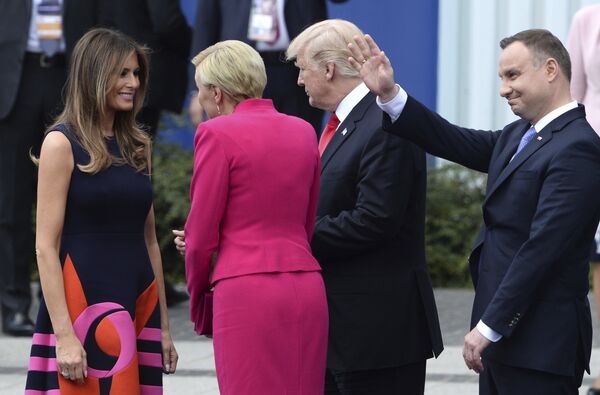
In this sense, "the Intermarium project becomes an umbrella structure, bringing together efforts and projects implemented under US patronage, and aimed at blocking Russian economic and political ties with Western Europe." Accordingly, Ishchenko noted that in this context, "it's no wonder that Poland's efforts to convince Russia of its 'good intentions' do not meeting with understanding from Moscow. Warsaw's intentions may be good (from the Polish point of view) but they run counter to Russia's long-term strategic interests."
According to Ishchenko, this 'constructive dialogue' may very well be about Ukraine. Warsaw, he noted, is fully aware that the West may soon abandon its 'Ukrainian project', and may thus be trying to bargain for the consideration of their own political and perhaps even territorial interests.
"After all, it must be understood that Moscow can wait for years for the right state of affairs to emerge in Ukraine…Poland, in case of a rapid negative development of events in Ukraine, will turn out to be a country which almost instantly (within the space of one or two years) receives five to six million 'European-oriented' refugees, mainly from the Bandera-supporting regions of western and central Ukraine."
"For Poland, where about one and a half million Ukrainian guest workers are already working, and where social tensions are growing on the basis of Poles' anti-Banderite sentiments, five million is a heavy load," the observer noted. "It's worth noting that Germany, which in two years has taken in a little more than a million refugees from Asia and Africa, is now bursting at the seams…"
"So the Polish foreign minister is telling the plain truth," Ishchenko stressed. "Warsaw really does have a desire to establish dialogue with Moscow. Poland really would like to convince Russia that its Eastern European initiatives, including the Intermarium, are guided by 'good intentions'. But is all this something Russia really needs?"

